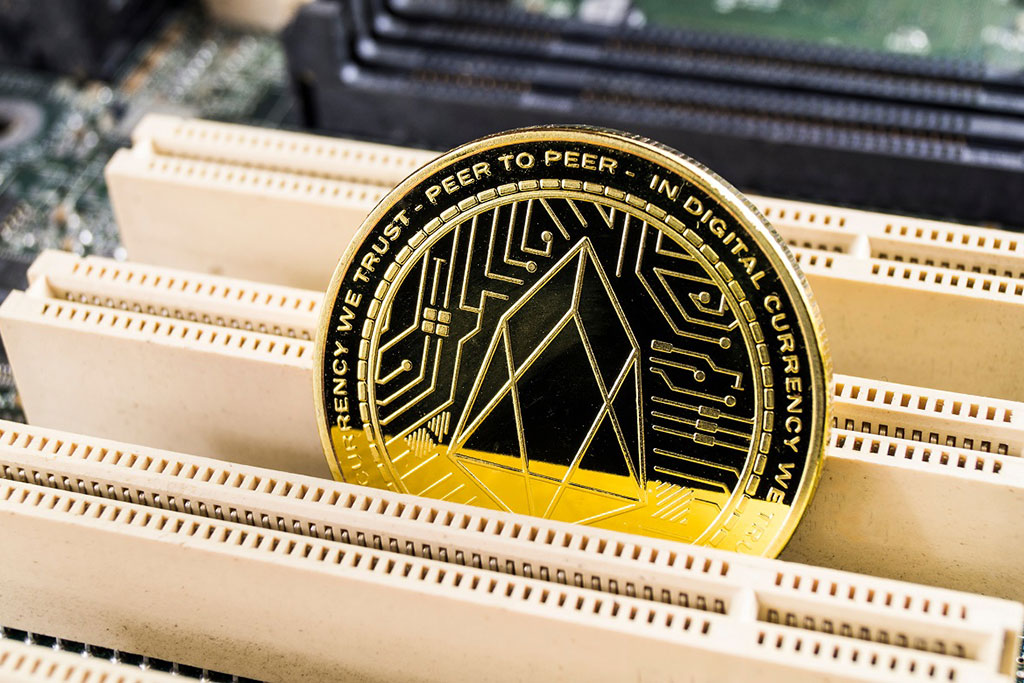Coinspeaker
EOS Proposal to Cap Supply at 2.1B Passed by Community
The EOS community has recently approved a significant proposal to cap the total supply of the protocol’s native token at 2.1 billion. This decision marks a pivotal moment for the blockchain as it introduces a fixed limit on the number of EOS tokens, addressing long-standing concerns about inflation and token supply.
80% of the Excess EOS Token Supply after Cap Will Be Burnt
According to Yves La Rose, CEO of the EOS Network Foundation, the proposal involves burning 80% of the current excess supply of the tokens. This means that a substantial portion of the existing tokens will be permanently removed from circulation, effectively reducing the total supply and potentially increasing the value of the remaining tokens.
The #EOS Network has reached consensus to approve the tokenomics proposal!
Inflation
Fixed Token Supply
80% Reduction in FDV
4 yr $EOS Halvings
$RAM Market Support
This marks a New Era for $EOS!
— Yves La Rose (@BigBeardSamurai) May 31, 2024
The EOS community widely backed the proposal, especially the block producers who have a critical role in the network’s governance. Notably, the update will not go live until after a few months.
Earlier, the organization put forward a proposal for a multi-signature system to create this set amount and received the endorsement of 15 of the 21 EOS block producers. At present, EOS has 1.15 billion tokens in circulation, which accounts for 54% of the total intended supply.
Meanwhile, a few days ago, the open-source blockchain platform announced a significant transformation of its EOS blockchain. This transformation will happen via crucial updates to its tokenomics. Also, the new model introduces token vesting schedules for network custodians, including EOS Block Producers, Staking Rewards, the EOS Network Foundation (ENF), and EOS Labs.
More Development on the EOS Network
Late last year, EOS Labs and ENF, the main stewards of the EOS Network announced a strategic collaboration with EOS Stablecoin Chain (ESCC), an Ethereum (ETH) based stablecoins solution provider. According to the partnership details, the three outfits aim to integrate an optimized platform for high-speed compliant stablecoin transactions.
Together they aim to provide EOS users with a specialized and efficient solution to handle stablecoin transactions, making them faster, more cost-effective, and regulatory compliant. Aside from facilitating transactions, ESCC’s partnership with the EOS Network introduces open and regulated stablecoin environments, including know-your-customer (KYC) processes.
The EOS Network Foundation has been strategically positioning itself for growth for a while. Back in April 2023, it secured regulatory approval to trade EOS tokens on regulated cryptocurrency exchanges in Japan. The Japan Virtual and Crypto Asset Exchange Association (JVCEA), the regulatory body responsible for ensuring safety in crypto trading, granted the whitelist approval, marking a pivotal step for EOS adoption.
That same month, EOS Network Ventures (ENV) allocated $20 million to support developers building apps and games on the network. The move boosted the network’s growing Decentralized Finance (DeFi) ecosystem, causing a sudden rise in locked value for EOS-built projects.





